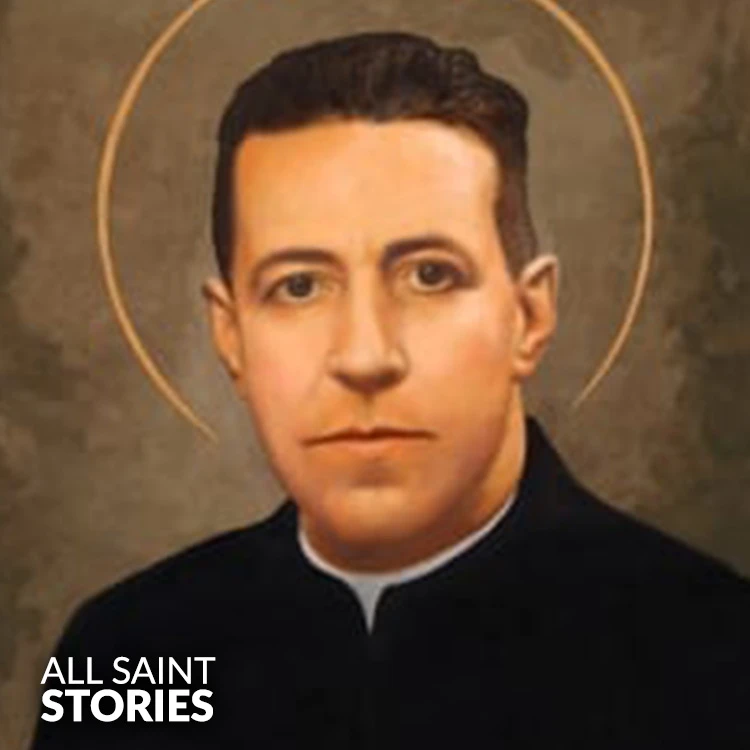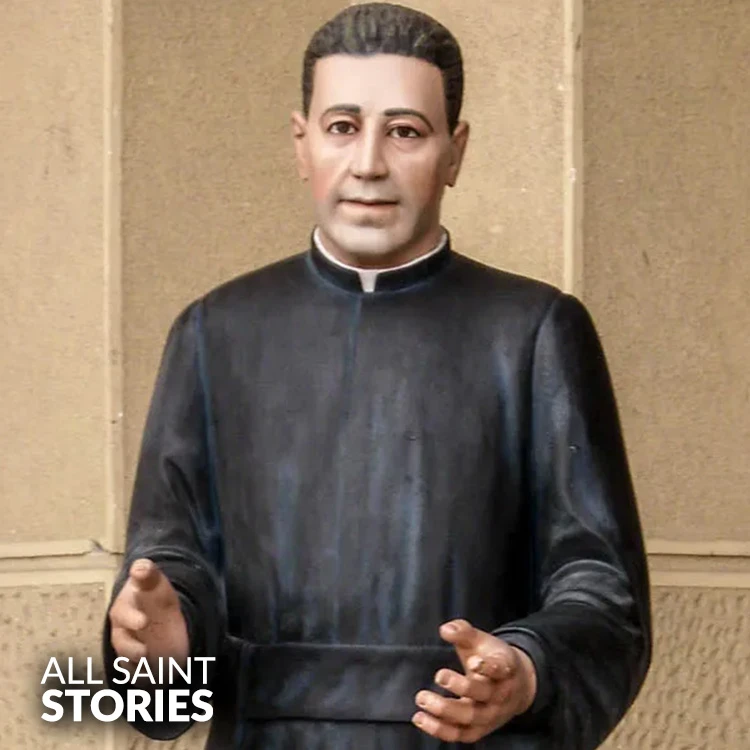"Saint Alberto Hurtado, faithful servant of God, help us to serve others with love and compassion, just as you did throughout your life. Inspire us to be a light to the poor, and to offer our hearts in service to those in need. Pray for us, that we may live with your spirit of charity and humility. Amen."
ST. ALBERTO HURTADO
ST. ALBERTO HURTADO

St. Alberto Hurtado was a Chilean Jesuit priest, lawyer, and social reformer, deeply committed to the poor and marginalized. He founded charitable institutions and promoted Catholic social teaching, becoming a national symbol of justice and compassion.
Saint Alberto Hurtado Cruchaga was born on January 22, 1901, in Viña del Mar, Chile. From a young age, he faced hardship after his father died and his family was left in poverty. Despite this, he excelled academically and spiritually, demonstrating strong moral integrity and an early desire to help others.
Alberto earned a law degree from the Pontifical Catholic University of Chile, and though he could have pursued a comfortable legal career, he chose a different path. In 1923, he entered the Society of Jesus (Jesuits) and was sent to Spain and Belgium for formation. He was ordained a priest in 1933, returning to Chile in 1936 to begin an energetic ministry that would touch every corner of Chilean society.
One of his most significant contributions was the founding of "El Hogar de Cristo" (The Home of Christ) in 1944, an institution dedicated to providing shelter, food, and dignity to the homeless and abandoned. It started with a small shelter and became a vast network of charitable works still active today.
St. Alberto was also a powerful advocate for workers’ rights, forming the Chilean Trade Union Association and writing extensively on Catholic social teaching, emphasizing the dignity of work, justice, and solidarity. His book Is Chile a Catholic Country? sparked critical conversations about how faith should translate into action for the poor and marginalized.
He had a profound spiritual life, marked by a strong devotion to the Sacred Heart of Jesus, the Eucharist, and Mary, and was known for his warmth, accessibility, and tireless energy. He especially valued the formation of youth and was a beloved figure among Chile’s young people through his involvement with Catholic Action.
Alberto Hurtado died on August 18, 1952, from pancreatic cancer, at the age of 51. His last words were: “Content, Lord, content.” His life was a living testimony to the Gospel, and he is remembered for bridging faith and social justice in action.
He was canonized by Pope Benedict XVI on October 23, 2005, in recognition of his virtuous life, his deep compassion for the poor, and his impact on the Church and society. He is now venerated across Latin America and is one of Chile’s most beloved saints.
Video Not Found
The information on this website is compiled from various trusted sources. While we aim for accuracy, some details may be incomplete or contain discrepancies.
If you notice any errors or have additional information about this saint, please use the form on the left to share your suggestions. Your input helps us improve and maintain reliable content for everyone.
All submissions are reviewed carefully, and your personal details will remain confidential. Thank you for contributing to the accuracy and value of this resource.
Credits & Acknowledgments
- Anudina Visudhar (Malayalam) – Life of Saints for Everyday
by Msgr. Thomas Moothedan, M.A., D.D. - Saint Companions for Each Day
by A. J. M. Mausolfe & J. K. Mausolfe - US Catholic (Faith in Real Life) – Informational articles
- Wikipedia – General reference content and images
- Anastpaul.com – Saint images and reflections
- Pravachaka Sabdam (Malayalam) – Saint-related content and insights
We sincerely thank these authors and platforms for their valuable contributions. If we have unintentionally missed any attribution, please notify us, and we will make the correction promptly.
If you have any suggestion about ST. ALBERTO HURTADO
Your suggestion will help improve the information about this saint. Your details will not be disclosed anywhere.
© 2026 Copyright @ www.allsaintstories.com




 English
English
 Italian
Italian
 French
French
 Spanish
Spanish
 Malayalam
Malayalam
 Russian
Russian
 Korean
Korean
 Sinhala
Sinhala
 Japanese
Japanese
 Arabic
Arabic
 Portuguese
Portuguese
 Bantu
Bantu
 Greek
Greek
 German
German
 Dutch
Dutch
 Filipino
Filipino